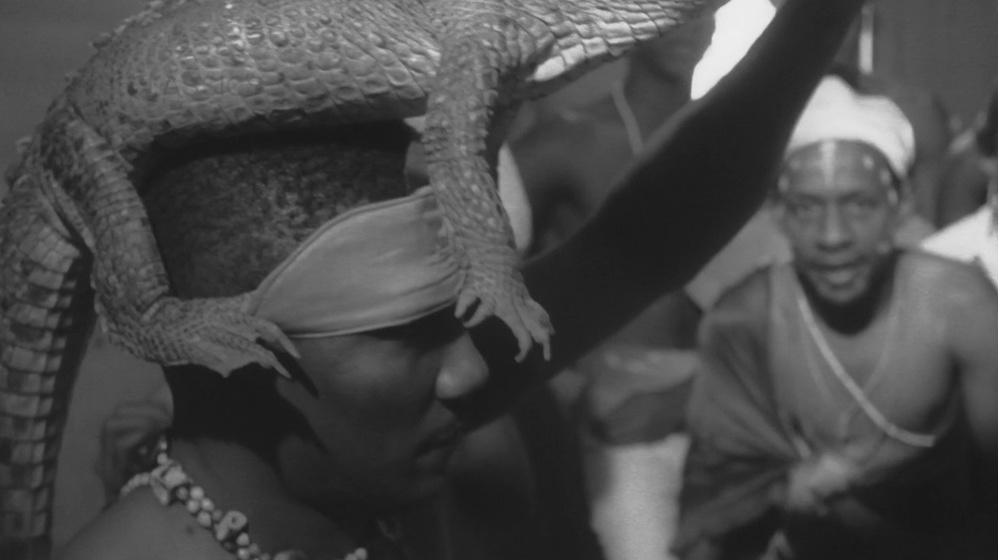Influenced by the Third Cinema of Latin America and Africa, the filmmakers of the L.A. Rebellion movement, also known as the Los Angeles School of Black Filmmakers, trained at UCLA (University of California Los Angeles) from the late 1960s (Ben Caldwell) to the mid-1980s (Zeinabu Irene Davis). In Cycles (1989), her thesis film, Davis explores the routines carried out by a black woman awaiting menstruation, positing the domestic space as a place of self-knowledge and personal liberation. The rituals of everyday life are intertwined in a dream with a voodoo ritual celebrating beauty and creativity. In both Medea (1973) and I & I: An African Allegory (1979), Caldwell proposes a "black audiovisual counter-archive" of photographs, ethnographic illustrations, staged and documentary images, songs and poems, oral stories, music and African-American sound creations by means of intense film collage. As he says, "we have to make the tools work for our history (...), that's why I ended up seeing film as a way to emancipate the image".
The main part of the session focuses on the irreverent and reflective Afro-Cuban filmmaker Nicolás Guillén Landrián. With more than 21 documentaries, and breaking with the dominant forms of representation, Landrián radically dissociates image, sound and written word in his films, moving away from the traditional educational documentary whilst offering, at the same time, a lyrical approach to popular revolutionary culture from an ambiguous, indeterminate stance. Los del baile (1965), En un barrio viejo (1963) and Coffea Arábiga (1968) are examples of a personal expression that cost him accusations and imprisonment for "ideological deviation", expulsion from the ICAIC (Cuban Institute of Cinematographic Art and Industry), subsequent censorship of his films and, finally, his exile to the United States in 1989.
Cycles, Zeinabu Irene Davis, 1989, 16 mm to digital, 18', original language with Catalan subtitles; Medea, Ben Caldwell, 1973, 16 mm to digital, 7', original language with Catalan subtitles; Los del baile, Nicolás Guillén Landrián, 1965, 35 mm to DCP, 7'; En un barrio viejo, Nicolás Guillén Landrián, 1963, 35 mm to DCP, 9'; Coffea Arábiga, Nicolás Guillén Landrián, 1968, 35 mm to DCP, 19'; I & I: An African Allegory, Ben Caldwell, 1979, 16 mm to digital, 32', original language with Catalan subtitles.
Digital and DCP projection.
Copy of Cycles from Women Make Movies. Ben Caldwell copies from UCLA Film & Television Archive and courtesy of the artist. Restored copies of Nicolás Guillén Landrián from Altahabana Films.
Conversation after the screening by Dean Luis Reyes, researcher and critic specialized in Nicolás Guillén Landrián's work, and Diego Cepeda, the programmer.
